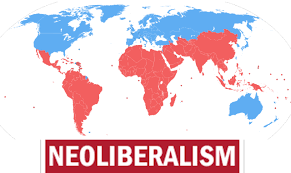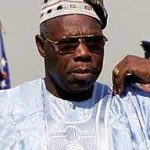The Guardian newspaper of Friday, 8th September, 2006, carried an excerpt from a paper presented recently at the Obafemi Awolowo University, Ile-Ife, by Professor Biodun Jeyifo, titled FATE OF CHILDREN OF NEO-LIBERAL GLOBALISATION. He had lamented “the rise of a pervasive culture of obscurantism and fetishist pseudo-intellectualism and the attendant subversion of reason and critical thought” in the Nigerian university system, “ as many senior teaching and research staff of academic departments come under the sway of evangelical, chiliastic religious movements.”
This is a truly disturbing phenomenon indeed. A visit to Nigerian universities today will reveal the reigning mindsets therein from the approaches: ethnic associations and all manners of religious groups. This is re flected now in associations of Muslims or Christians in medicine, in law, etc., even Christian or Muslim graduates association. Our country is being divided with the emergence of every new association of these colours and they are often so self-righteous, intolerant and very reactionary in content»and practice. The problem is that they dissipate so much energy that should have been canalised into building national movements to pose a serious political challenge to the ruling orthodoxy of the uncaring capitalism of privatisation and neo-liberal slavery to the Washington Consensus. The future of Nigeria as a potentially great country will never be built on a foundation of obscurantism, divisive ethnic and religious micro organisations. We must organise militantly, patriotically and on a national scale.
But the pertinent question to ask is how did we get to this very sorry pass? Why are a majority of individuals who ordinarily should be playing an active role in society in a far more constructive manner today locked within backward and reactionary redoubts of ethnicity and religion? For answers, we have to go back to the last twenty years of our national experience when we were not only under military dictatorship, but were also saddled with a structural adjustment regime. A major aspect o f this period in our national life was the philosophical decision taken to launch an attack on the role of the state in the process of development in our society; this was in concert with a worldwide process linked with ‘Reaganism’ in the United States and ‘Thatcherism’ in Britain. The neo-liberal thinkers and politicians had triumphed in the heart of the imperialist world; their theories had become the dominant paradigm in the imperialist financial institutions of the IMF and the World Bank and these theories became the mantra forced down the throats of countries around the world. So while the military regime of General Babangida went on a propaganda trip about the ‘home-grown’ essence of SAP, all those who cared knew that we were confronted with a newer and more vicious form of imperialist control of our national life.
The military dictatorship led to the phenomenon of a ‘privatisation’ and criminalisation o f the state as cronyism and corruption became the order of state rule. It became obvious that the Nigerian state was increasingly becoming unable to meet the basic needs of the Nigerian people: for security or for basic livelihood. It was this period in our national life that saw a systematic brain drain from the university system, from the professions and even from lower levels of the society. Within this general crisis of post-colonial, dictatorial decay, criminal gangs also became increasingly sophisticated and saw the state as a fair target of attacks.
The Hobbesian state of existence where life became ‘nasty, brutish and short’, which our country was turned into, from the mid nineteen eighties led people to find newer platforms of identity and support. It is said that even nature abhors a vacuum; so when the state abandoned its responsibility to the Nigerian people, new social forms emerged to fill in the spaces so vacated. Of course, military rule had become discredited in the wake of a worldwide movement of agitation against dictatorship; unfortunately, the hopes that the struggle for democracy kindled in Nigeria would eventually be snuffed out with the annulment of the June 12, 1993 elections and the repressions which followed under General Sani Abacha. It was this period which facilitated the emergence, popularity and consolidation of the various ethnic and religious associations that would now take over the social space of our country, often with very reactionary ethos, and as we have seen with an outfit like the OPC, a new, even genocidal streak.
This was also the period that led to the proliferation of NGOs and civil society organisations. Of course, many of them have played an important role in recent struggles, but the insight by Tariq Ali in his book, BUSH IN BABYLON: THE RECOLONISATION OF IRAQ (Verso 2004) should give us the pause. Tariq Ali in analysing the different options of manipulation open to Iraq’s American colonisers reminded that this was the imperialism of the epoch of neo-liberal economics when everything was liable to being privatised, including civil society. If not for the incredible resistance of the Iraqi people, “like aliens from another world”, in his words, “NGOs (would have descended) on Iraq like a swarm of locusts and interbreed wkfe*he locals. Intellectuals and activists of every stripe in all major cities will be bought off and put to work producing bad pamphlets on subjects of purely academic interest”. Tariq Ali is not done; he said the effort of This has the effect of these foreign NGOs has a purpose; neutering potential opposition or, to be more precise, of confiscating dissent in order to channel it in a safe direction.
The message from the donors is straightforward: make some noise by all means, but if you do anything really political that seriously affects the functioning of the neo-liberal state on any level, your funds might not be renewed.” What happens in the long run is that serious participation in politics is reduced or even totally eliminated. “This is then characterised as ‘civil society’ or ‘real grass-roots democracy’, cleaner and more userfriendly than any political party. Users may be limited, but the NGO salaries from the West are there to ensure that this remains the case. Some NGOs do buck the trend and are involved in serious projects, but these are an exception”. Ali says that in the African setting, military dictatorship has been replaced with a new form of rule: “capitalist democracy = privatisation + ‘civil society’”. His summation of this new form of domination: “This tried–and-tested formula has already wrecked much of Latin America and the whole of Africa”. It is the new face of what Tariq Ali described as “the dictatorship of capital (which) is proving much more resilient than the military variety”.
It is therefore within the scope of our analysis that the Reactionary ethnic and religious organisations that have proliferated are even registered in many instances as NGOs; after all, they can carry out their divisive and reactionary activities and in the process get the opportunity to access dollars, the currency of the NGO world. But the truth remains that the needs of the struggle for national liberation away from existence like orphans in a world of neo-liberal capitalism obliges all patriots to build genuinely patriotic, cross-ethnic, cross-religious organisations. This is how to liberate Nigeria from imperiatfsm and the monster of neo liberal capitalism.
Obasanjo’s Transcorp albatross (II) Last week, one o f Obasanjo’s leading side-kicks in the business world, Mrs Okereke Onyuike, finally confirmed what everybody has long known that Obasanjo is a shareholder in the controversial ‘company’ known as TRANSCORP. It was useful that at least the Obasanjo shareholding has left the realm of speculation, and has come to be acknowledged in the open despite the ridiculous effort by some of Obasanjo’s lieutenants to put a spin on the facts.


